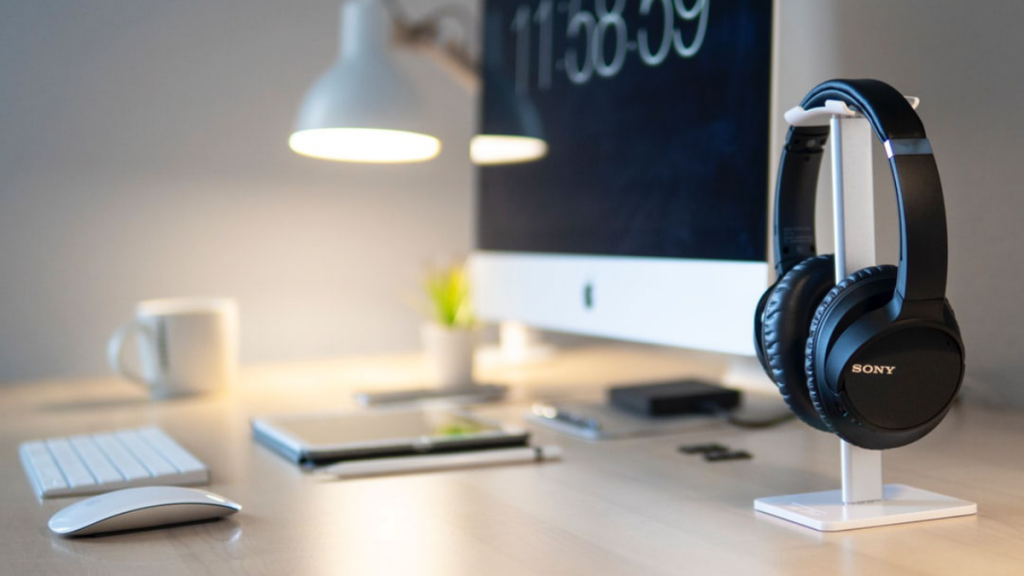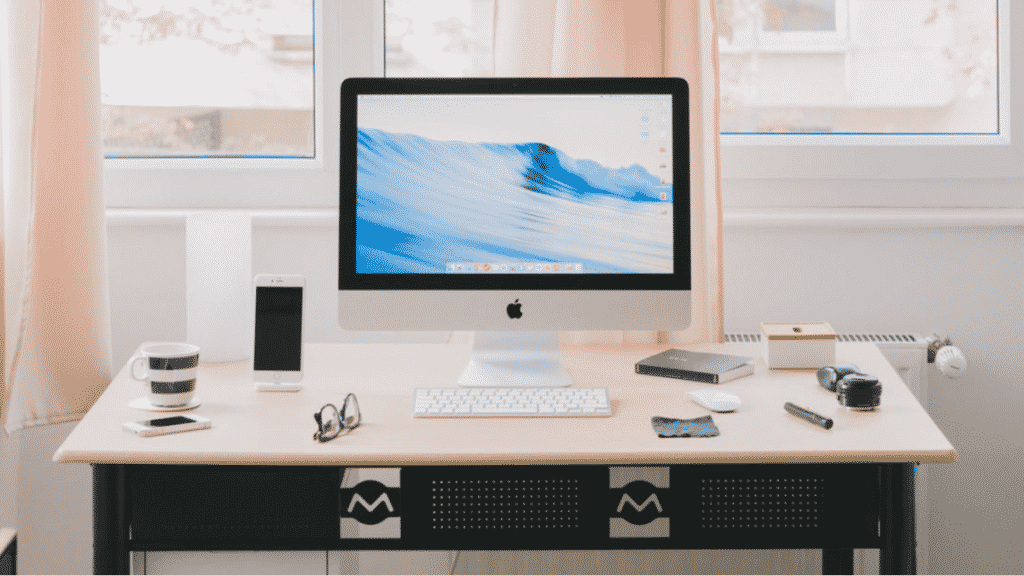The coronavirus pandemic has thrown the world into disorder. Active frequent travelers find themselves barricaded inside their homes for fear of an invisible pathogen. It’s a sensible reaction, too, because we all know by now how incredibly important it is to practice social distancing and flatten the curve. One of the best ways to do that is to work from home.
Working from home conjures up images of doing laundry, staying in your pajamas, and generally slacking off. Whether or not this is a fair assessment is up for debate. Many people, myself included, find themselves very effective when working from home.
As in the office, true productivity comes from your mindset. If your job allows you to work from home, you are definitely still working. You’ll have good days and bad days, productive days and unproductive days. Yet by following a few basic guidelines, you can increase the number of good and productive days.
I’m going to give you 20 tips now, straight from my own experiences.
1. Set priorities at the start of every day.
No one will hold you accountable at home. At least, they won’t in the same way that they will in the office. There is a hard limit to how much your boss can nag you by phone or email.
If you want to crush it when working from home, you have to be a self-starter. The easiest way to do that is to set clear goals and commit to meeting them, every single day. It’s simple, but it’s effective!
2. Wake up on time.
I’m not great about this one, I’ll be honest with you. Yet when I do manage to avoid the iPhone snooze button, I find a great sense of pride and accomplishment. My day starts off with a good act, and one made of my own volition, creating a virtuous cycle, rather than a vicious one that comes with constantly running behind.
When working from home, you may be able to sleep an hour later than usual, but you still need to take your work seriously. Obeying the alarm, as unpleasant as its beckoning may be, is an important part of that.
3. Dress well.
You don’t have to wear a suit or heels. You don’t have to even wear a nice dress shirt or a blouse. Wearing clean, presentable clothes, even if they’re casual like jeans and a polo, will make you feel much better than staying in your pajamas or a bathrobe. It’s pure psychology: you look like you’re ready to work and your mind will say, “I guess it’s time to work.”
4. Keep a routine.
Working from home, especially on short notice, can really disrupt your sense of normality. Routines help us avoid constantly thinking about our every action, allowing us to focus our attention on what is really important. As much as possible, you want to keep a routine, even if you’re not in the office.
5. Get some sunshine.
Being in the office doesn’t mean you have to be a shut-in. Your body needs sunshine. That’s why people who live in very high latitudes become depressed in the long, dayless winters. Spend time outdoors if you can. If you can’t, at least open the curtains and crack a window.

6. Make your office comfortable, but not too comfortable.
A well-designed corporate office requires a balancing act. You want it to be pleasant to the eye, but not distracting. You want neither eerie silence nor constant rancor. Furniture should be ergonomic and supportive, but not plushy and overly comfortable.
Working from home is the same way. If you can avoid it, stay off your couch and stay out of bed. Get a proper, decent desk from a cheap furniture like Wayfair or Ikea and put it together. Get an office chair with good back support, but don’t buy a throne.
Remember: you want to make a place you’re okay with working in, but not a place that you’re okay sleeping in.
7. Schedule your time and block out interruptions.
One of the terrible things about the modern office is how noisy and interruptive it is. People are constantly talking on the phone, walking by your desk, microwaving fish, and generally doing things that make your life harder. The home doesn’t have that.
Well, except for screaming kids, weird neighbors, and unlimited access to all of the home entertainment you can possibly imagine.
Needless to say, discipline is key. Keep a tight schedule and make sure you block out as many interruptions as you can. For the ones you can’t, build that into your expectations, just as you would in the office.
8. If you’re snacky, count calories.
The pantry is right there. Waiting. Watching. Put down the cookies and make a MyFitnessPal account if it’s going to tempt you.
9. Buy a decent webcam and microphone.
Odds are pretty good that you will be video conferencing more if you’re working at home. For that reason, a good webcam and microphone are a must. Without a physical presence in the office, this is how people perceive you. Your webcam and microphone become as important as your clothing to telling people about you.
Is it fair? No. But it is easily fixable with even a $50 webcam.
10. Socialize with your colleagues.
Just because you’re at home, doesn’t mean it’s a good idea to become a hermit. You still want to take the time to engage your colleagues in conversation. Not only do you need the socialization for your mental well-being, but it’s also important for your long-term career prospects. People tend to forget about people they don’t see or hear from, as fair or unfair as that may be.

11. Have a dedicated workspace.
I touched on this a bit with point #6. Having a workspace that is uniquely dedicated to your work will greatly help you to get into the mood needed to be productive. Whether this means an entire room or simply an office corner depends on how big your living space is.
If you work from the bedroom, you’ll be a bit tired all day. If you work in the kitchen, you’ll be hungry. Your mind will naturally pick up on cues from your environment, so you want to make sure your environment is sending you cues to do good work!
12. Log out of social media.
Facebook, Twitter, Instagram, and the like are so distracting. If you log out during the day, you can always log back in later. It makes it that much easier to stay disciplined.
13. Keep a list of stretch goals.
You may find that working from home is so efficient that you complete your work early. If that’s the case, if you’re still feeling productive, it’s great to have a list of stretch goals. That way you can go above and beyond in a meaningful way!
14. Don’t just manage time, manage energy.
It’s easy to schedule large blocks of time for work, but it’s often hard to get the work done. Make sure that your schedule is realistic and matches your general day-to-day energy and motivation cycles. Otherwise, you’re wasting your own time.
15. Do brainy work when you’re feeling sharp.
If you feel brightest at 8 am, do all your smart work at 8 am. For me, my best work comes in the mid-morning, and I make sure I use that time for content writing and other complex creative endeavors. If you’re a night owl, then by all means, do your most important work in the evening!

16. Do administrative work when your energy is low.
Paying bills, answering emails, and checking your voicemail are important, but you don’ t exactly have to be mentally at the top of your game for these tasks. For that reason, I recommend you flip the advice in #15. If you’re a morning person, do administrative work in the afternoon. If you’re a night owl, do administrative work in the morning.
17. Connect to the internet by cable and not Wi-Fi.
This is a relatively small detail, but it can make a huge difference in your productivity. Wi-Fi is somewhat unreliable, particularly in large homes. If you plan on doing a significant amount of online work from home, then you should get a simple Ethernet cable and plug your computer into the wall. Your connection will pretty much never drop if you do that.
18. Play music.
Music makes life so much easier and it can really get your creative and productive energies going. May as well find music you like on Spotify, and play it while you work. Be sure to pick music that doesn’t distract you, though!
19. Make sure your family takes working from home seriously.
None of this advice matters if your family acts like working from home is not real work. It’s borderline impossible to do good work if your family (or roommates) don’t respect your work-related boundaries.
20. Take regular breaks.
Since you’re not in the office, it’s tempting to sit in the same chair for 8 hours, only getting up for coffee, lunch, and bathroom breaks. This is a mistake. Your mind needs a rest sometimes, and taking even a few minutes to step away from the screen can do wonders for your productivity and mental health.
Final Thoughts
If you approach it with the right mindset, working from home can be awesome! You need to take it seriously, carefully plan out your day, and give yourself opportunities to succeed and be comfortable.
After the pandemic is over, who knows? You may like working from home so much that you may never go into the office again!
You’ve done everything by the book. Your Kickstarter campaign is almost ready to launch.
You made a great product. Built an audience. Set up a campaign page.
But how do you ship it?
We put this checklist together to help you get started. It's free.





